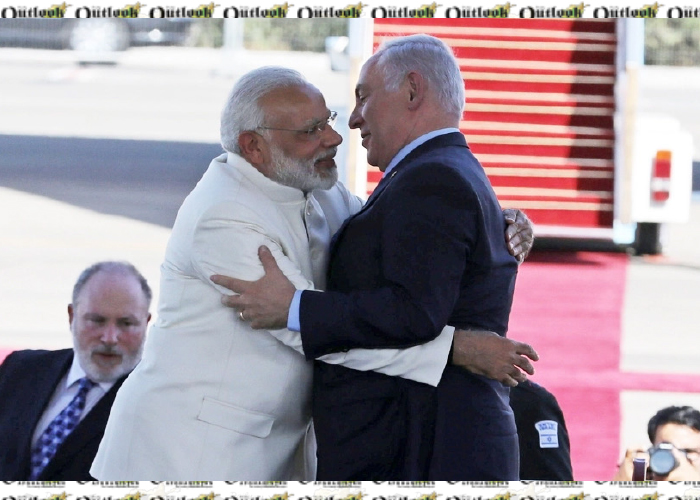Israel has faced global condemnation for its actions in occupied East Jerusalem and continued bombing of the Gaza Strip, but it has found support in India where pro-government activists have thrown their weight behind Israel and are even defending its policy against Palestinians.
At least 212 Palestinians, including 61 children, have been killed and more than 1,000 others wounded in one week of intense Israeli air attacks in besieged Gaza – home to 2 million people. In the occupied West Bank, Israeli forces have killed at least 19 Palestinians protesting against forced expulsions from their homes.
At least 10 Israelis have also been killed in rockets fired by Hamas fighters from Gaza.
Hashtags such as #ISupportIsrael, #IndiaWithIsrael, #IndiaStandsWithIsrael and #IsrealUnderFire have trended on Indian social media over the past week, with many calling Palestinians “terrorists” – a term used by Israel for Palestinian resistance groups.
On Saturday night, #PalestineTerrorists was one of the top trends on Twitter in the South Asian nation.
The trends to show support for Israel have been amplified on social media, particularly Twitter and Instagram, by leaders of Prime Minister Narendra Modi’s ruling Bharatiya Janata Party (BJP), lawyers and journalists among others.
On May 12, BJP Member of Parliament (MP) Tejasvi Surya, known for his anti-Muslim rhetoric, wrote on twitter: “We are with you. Stay strong, Israel.”
His tweet, in response to a post by Israel’s foreign ministry, was liked nearly 50,000 times and retweeted nearly 13,000 times.
‘Visceral hatred for Muslims’
BJP spokesman from the northern Indian city of Chandigarh, Gaurav Goel, has been regularly tweeting in support of Israel. On Friday he tweeted a picture of Israeli forces saying: “Dear Israelis, you are not alone, we Indians stand strongly with you.” It was liked 3,600 times.
Hardik Bhavsar, a twitter user followed by 134,000 people including Prime Minister Modi and Home Minister Shah, on Saturday shared a video of a high-rise tower that hosted media offices, including Al Jazeera and Associated Press, destroyed in Israeli bombardment.
“Happy Dipawali liberals. #IndiaStandWithIsrael,” he tweeted mocking liberal Indians who oppose Israeli militarism, referring to Dipawali, the Hindu festival of lights. It was liked nearly 3,000 times.
Indian journalist and writer Rana Ayyub on Sunday wrote that while checking most of the #IndiaStandWithIsrael tweet handles, a common thread that runs through is a “visceral hatred for Muslims and a bloodlust to see Muslims massacred and shown their place”.
“Most handles [are] followed by one or more BJP minister[s] or the PM himself,” she added.
Srinivas Kodali, a writer and researcher working on data, governance and internet, told Al Jazeera there is a section of polarised Hindutva (Hindu-ness) groups who are supporting Israel’s actions against Palestine purely because Muslims are being persecuted.
“It is their hate towards Muslims that is making them cheer Israel’s actions,” he said.
India’s historic support of Palestine
India has historically supported Palestinian self-determination as part of its anti-colonial solidarity following its independence from British rule in 1947.
The country was the first non-Arab country to recognize the Palestine Liberation Organisation (PLO) authority as “the sole legitimate representative of the Palestinian people”. A PLO office was set up in New Delhi in 1975.
India issued a commemorative postage stamp on November 29, 1981 to mark the international day of solidarity with the Palestinian people.
The evolution of India’s Palestine policy goes back to pre-independence days when Indian nationalists looked upon Palestinians as fellow “brothers-in-bondage”.
India’s freedom fighter Mahatma Gandhi famously said in 1938, “Palestine belongs to the Arabs in the same sense that England belongs to the English or France to the French.” (Alazeera)
Home » World » Why India’s Hindu Nationalists are Backing Israel on Gaza Bombing
Why India’s Hindu Nationalists are Backing Israel on Gaza Bombing

